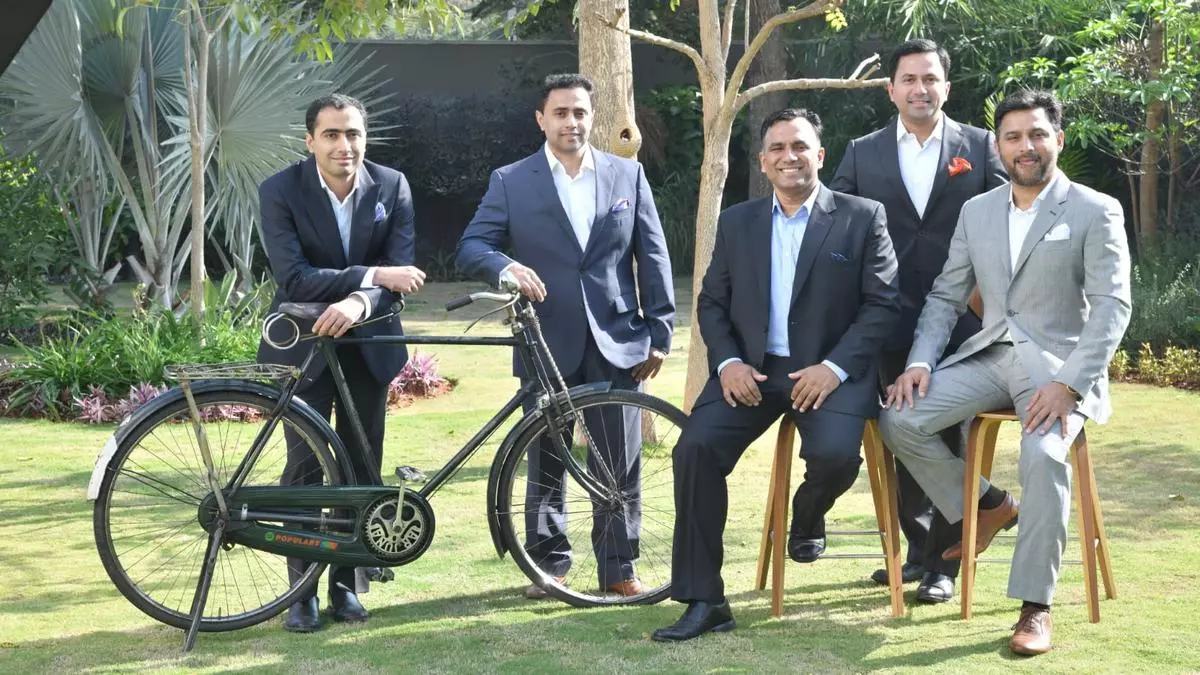“India has been praying for years with Cycle brand agarbathies, and now the brand aims to be the country’s puja room brand,” declares Arjun M Ranga, Managing Director of N Ranga Rao & Sons, owners of Cycle Pure Agarbathi, India’s leading agarbathi manufacturer that produces about 12 billion agarbathi sticks a year.
The Mysuru-headquartered Cycle brand Agarbathi, recently celebrated its 75th anniversary in Chennai — a significant milestone in the journey of a spiritual man and his family’s dedication to the incense business. The sacrifices of three generations have sustained a challenging business and established a popular spiritual brand, says Ranga. It’s now a ₹1,000 crore plus business.
Arjun’s grandfather N Ranga Rao started the business. Hailing from Vathirairuppu village in Virudhunagar district, Rao’s family were primarily teachers and pujaris. Rao lost his father at eight, married early and after a brief stint at the Aravankadu Cordite factory moved to Coorg to work in a coffee plantation. He began his agarbathi company in 1948 when his wife pawned her jewellery to provide the initial capital, making the company one of the early start-ups in post-Independence India.
Recognising the importance of fragrance creation, Rao imported books on perfumery from France in 1949. It took nearly 10 months for the books to arrive, but he diligently studied them, leading to in-house fragrance creation — a key factor in Cycle agarbathi’s success. In 1950, he coined the name ‘Cycle’ for its simplicity and universal appeal, symbolising hope and accessibility, much like prayer. When his sons joined the business, the business scaled and ‘Cycle’ became a recognised brand.
In the mid-2000s, the company diversified into personal and air care lifestyle products, and now offers a wide range of fragrance products like reed diffusers, fragrance vaporizers, potpourri, fragrance gifts, pillow misters, fragrant sachets, fragrant stones and aromatic candles. Recently, it entered the puja room consumables market, including kumkum, turmeric, camphor, oil, diyas and sambrani. Within the Agarbathi domain, the company created the cup sambrani, branded as Naivedya, 10 years ago, now a leading product.
The company operates factories across Tamil Nadu, Karnataka, Maharashtra and Odisha. It employs about 8,000 people and indirectly supports the livelihoods of about 25,000 women .
Arjun M Ranga, Managing Director of N Ranga Rao & Sons, owners of Cycle Pure Agarbathi that employs supports the livelihoods of about 25,000 women
Headroom for growth
The agarbathi category in India has achieved about 85 per cent penetration. The company anticipates growth to come from the existing 85 per cent market, driven by the premiumisation trend. Increased value in consumption due to premiumisation and the nuclear family trend is a demand driver.
Research and consumer insights reveal that over the past 10 years, families have increasingly passed down traditions — including prayer types and pujas — to the next generation. “Here, agarbathi provides an immediate connection in families. Also, people are increasingly feeling that prayer is good,” says Ranga.
The company’s product expansion and diversification have gathered a significant pace post-Covid “as people have started praying more,” says Ranga. “We have seen an aggressive increase in the consumption of prayer and puja essentials, and focused on quality. For example, our Cycle Om Shanti kumkum is the only one with a cosmetics licence and is safe on the skin,” he states.
According to estimates, the addressable puja room market opportunity is about ₹20,000 crore, with agarbathi accounting for about ₹8,000 crore. The company aims to carve a niche in this puja room business.
Ranga says the company is expanding into services and distribution at multiple levels. It has launched at least six portals for different products and services as part of its D2C (direct-to-consumer) strategy. “Do digital and online first, see consumer insights, and then take it offline. It’s working out better,” he says.
Expanding services
For puja services, the company launched a web site called pureprayer.com, where one can do digital pujas and sthala pujas of certain temples. Soon, this will integrate with astrology services, which have seen strong traction on digital platforms.
It also has a web site called pujaroom.com, where it sells puja accessories like mantapam, deepams, idols and incense holders. Other portals include karpure.in, pujayu.in, and gavi.com (for cow-based products).
In addition to traditional distribution, modern trade outlets such as Reliance, DMart stores and online marketplaces like Amazon and Flipkart are their key focus areas. Partnerships with B2B commerce and quick commerce are also being strengthened.
“Quick commerce is growing rapidly, though its contribution to our business is small now. I think it is a significant opportunity as convenience has become paramount,” Ranga says.
The company is also expanding offline-online integration with cycle.in, which will be integrated with offline stores. It has 25 stores across several states and plans to increase the number to 150 by next year.
Currently, Cycle Pure Agarbathi has around 5,000 distributors and 2,000 company sales representatives. It reaches about 8,00,000 retail outlets directly and 1.5 million indirectly across India. This strategic move, initiated in the late ’70s and ’80s, has positioned the company among the top 20 non-food FMCG companies in India. It is also a major exporter of agarbathis, shipping its products to about 75 countries globally.
Personalisation is another major focus. The company has created a custom incense page within cycle.in, offering one million combinations of fragrances. Customers can create signature fragrances for events like weddings, with the fragrance delivered in various forms like diffusers and candles. “So, growth avenues have increased for us,” he said.
“I intend to create a house of brands of D2C. It may be an expensive proposition, but I hope it will be beneficial in the long term,” states Ranga.

